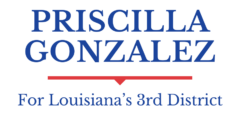The PUMP (Providing Urgent Maternal Protections) for Nursing Moments Act (H.R. 3110) seeks to expand and improve workplace safety measures for nursing moms. The law fills gaps in existing regulations, ensuring that more working moms have the time and place to pump breast milk. Key elements of the bill include:
- Extended Coverage:
- Inclusion of More Workers: Expands the rights to break time and private, non-bathroom space for expressing breast milk to nearly all employees, including salaried and exempt workers who were previously excluded.
- Break Time:
- Reasonable Break Time: Requires employers to provide reasonable break time for an employee to express breast milk for up to one year after the child’s birth each time the employee needs to express milk.
- Private Space:
- Non-Bathroom Space: Mandates that employers provide a private, non-bathroom space shielded from view and free from intrusion to express breast milk.
- Enforcement and Remedies:
- Legal Recourse: Provides nursing mothers with the right to file complaints with the Department of Labor and to seek legal recourse if their rights under this act are violated.
- Employer Accountability: Holds employers accountable for failing to comply with the requirements, ensuring that nursing mothers are adequately supported in the workplace.
Impact of Voting Against the Bill
Voting against the PUMP for Nursing Mothers Act, as Clay Higgins did, can be seen as highly detrimental for several reasons:
- Support for Working Mothers:
- Workplace Equality: Opposing the bill denies extended protections to working mothers who need to express breast milk, perpetuating inequality in the workplace and making it more challenging for mothers to balance work and childcare responsibilities.
- Health Benefits:
- Infant Health: Breastfeeding has well-documented health benefits for both infants and mothers. By voting against this bill, Higgins opposes measures that support breastfeeding, potentially impacting the health and well-being of countless infants and mothers.
- Maternal Health: Supporting breastfeeding also benefits maternal health, reducing the risk of certain illnesses and promoting faster postpartum recovery.
- Economic Impact:
- Workforce Participation: Adequate support for nursing mothers can lead to increased workforce participation and retention of female employees. Opposing the bill can contribute to higher turnover rates and reduced productivity, as nursing mothers may be forced to leave their jobs or take extended breaks from the workforce.
- Employer Practices:
- Inadequate Protections: Without this legislation, many employers may not provide the necessary time and space for nursing mothers, leading to a lack of uniformity in workplace practices and potentially leaving many mothers without adequate support.
- Legal Protections: Voting against the bill removes the opportunity for nursing mothers to have legal recourse if their rights are violated, weakening their position and protection in the workplace.
Clay Higgins’ vote against the PUMP for Breastfeeding Moms Act demonstrates a stance opposing critical workplace safeguards for breastfeeding moms. This judgment may have far-reaching negative consequences for the health and well-being of infants and mothers, workplace equality, and women’s economic involvement, undercutting attempts to build a more supportive and equitable working environment for all employees.
